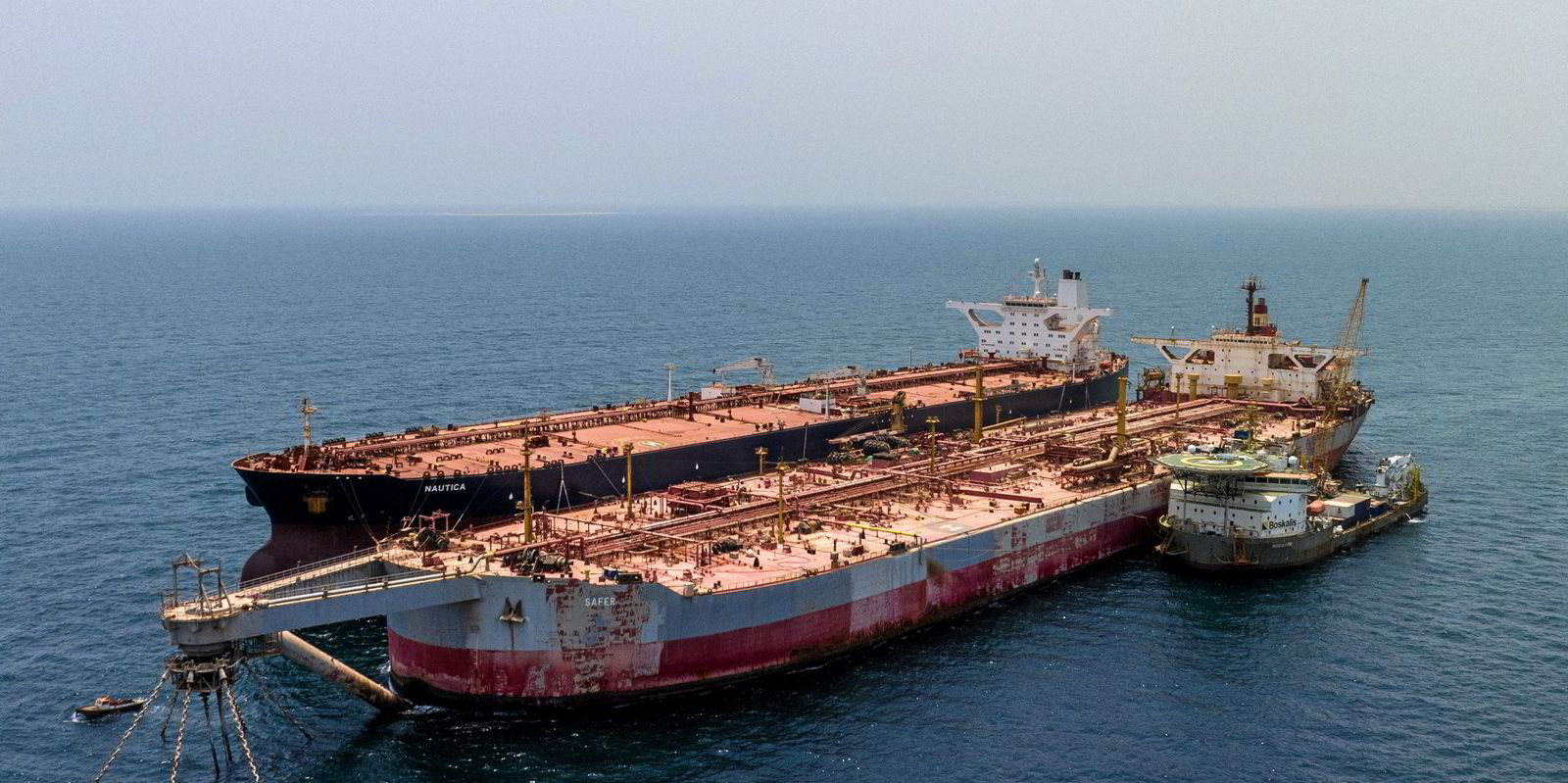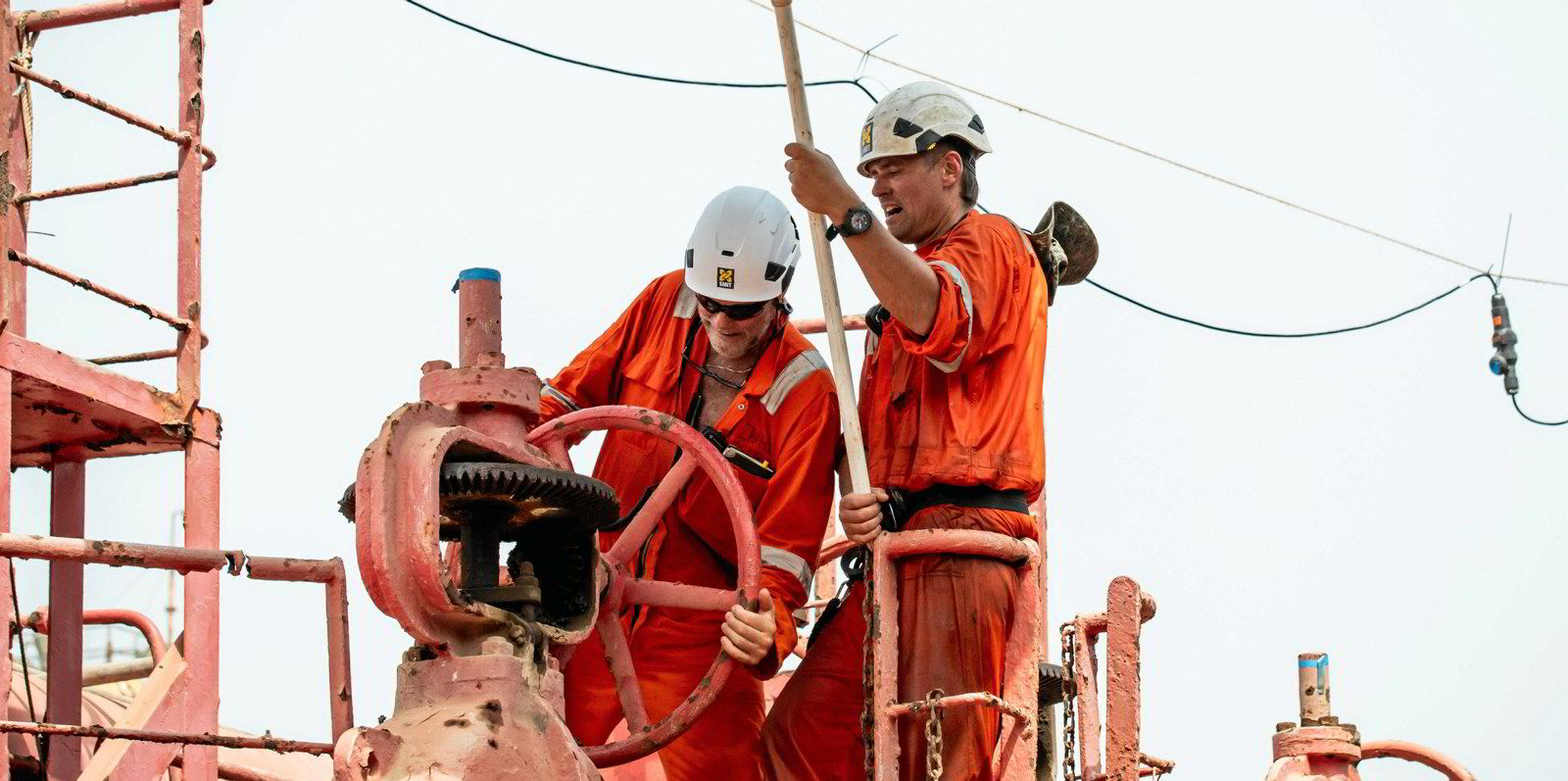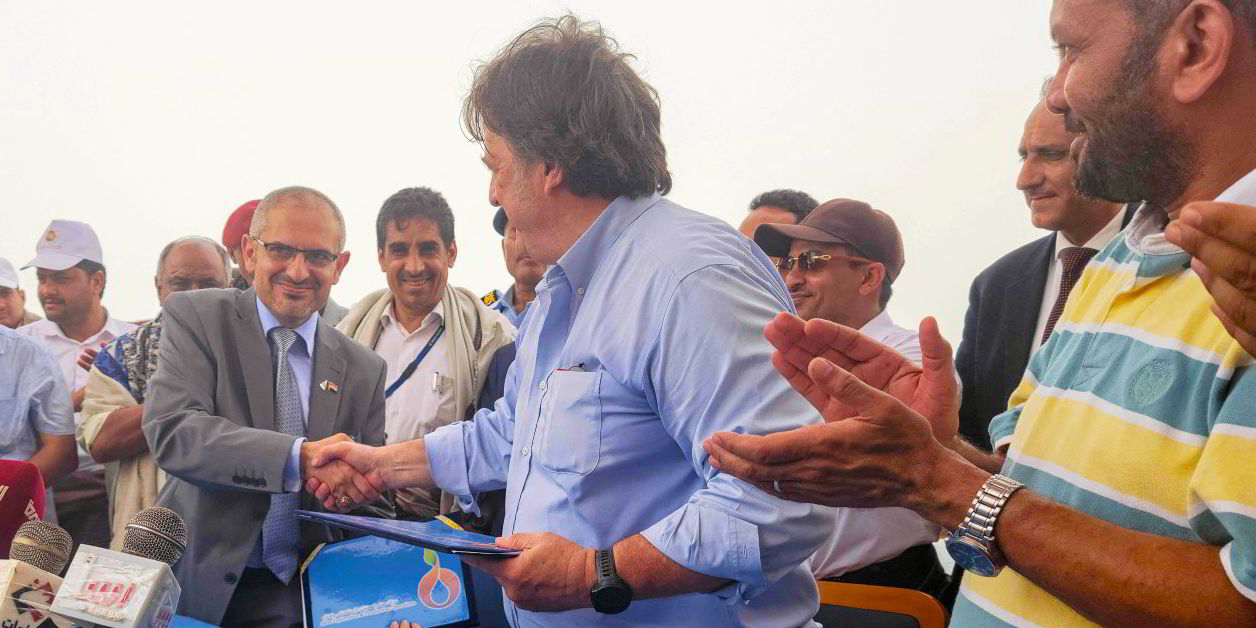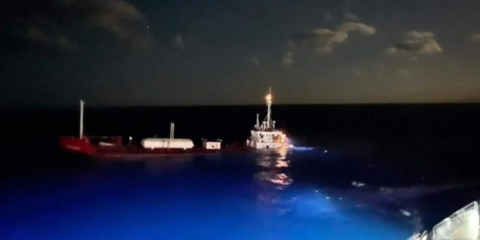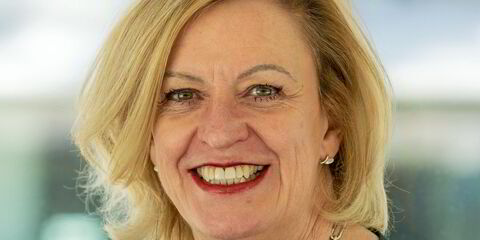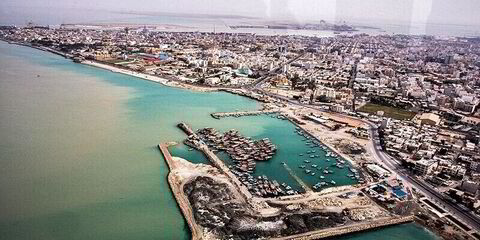The successful lightering of an ageing supertanker in danger of breaking up in the Red Sea has been met with relief from the project’s insurance underwriters.
The London market led a consortium of insurers to cover the United Nations project to lighter the 1.14m barrels of light crude from the 406,600-dwt FSO Safer (built 1976), despite the huge risks involved.
The insurance market was involved in not only underwriting but also providing risk mitigation advice through technical marine and salvage experts.
“Removing over a million barrels of oil from a decaying super-tanker in such a high-risk area is an extraordinary achievement, and one that at first was deemed impossible,” said broker Howden’s chief executive David Howden
He described it as “one of the most complicated risks I have ever seen underwritten”.
“This mission wouldn’t have been viable without the combined efforts of hundreds of highly skilled salvage experts, naval engineers, and technicians,” Howden said.
The operation was led by the Dutch salvage firm Smit.
More than 100 individual underwriters were involved in the risk assessment.
In total, 13 different underwriting entities were “on risk” in the insurance cover, with Fidelis MGU among the lead underwriters.
P&I mutual insurers NorthStandard and West of England P&I Club were also involved in providing cover.
A spill from FSO Safer would have devastated fishing communities on Yemen’s Red Sea coast and exposed thousands of communities to life-threatening toxins and caused irreversible damage to sea life, coral reefs and mangroves.
A clean-up operation from a spill from the vessel would have cost $20bn, the United Nations has estimated.
$22m in funding needed
“This was a complex and delicate operation to avert what could have been one of the worst oil spills in human history,” said Sean McGovern, chief executive of AXA XL.
He praised the support of the London market for putting the insurance together.
“The successful completion of this operation has been a true partnership effort and led from the London market, it demonstrates the critical role insurance has played in enabling and supporting the salvage team to execute the safe recovery of the oil,” he said.
There is still some work to be done before the FSO Safer operation is finalised. The UN is calling for an additional $22m in funding from member states to complete the project.(Copyright)
